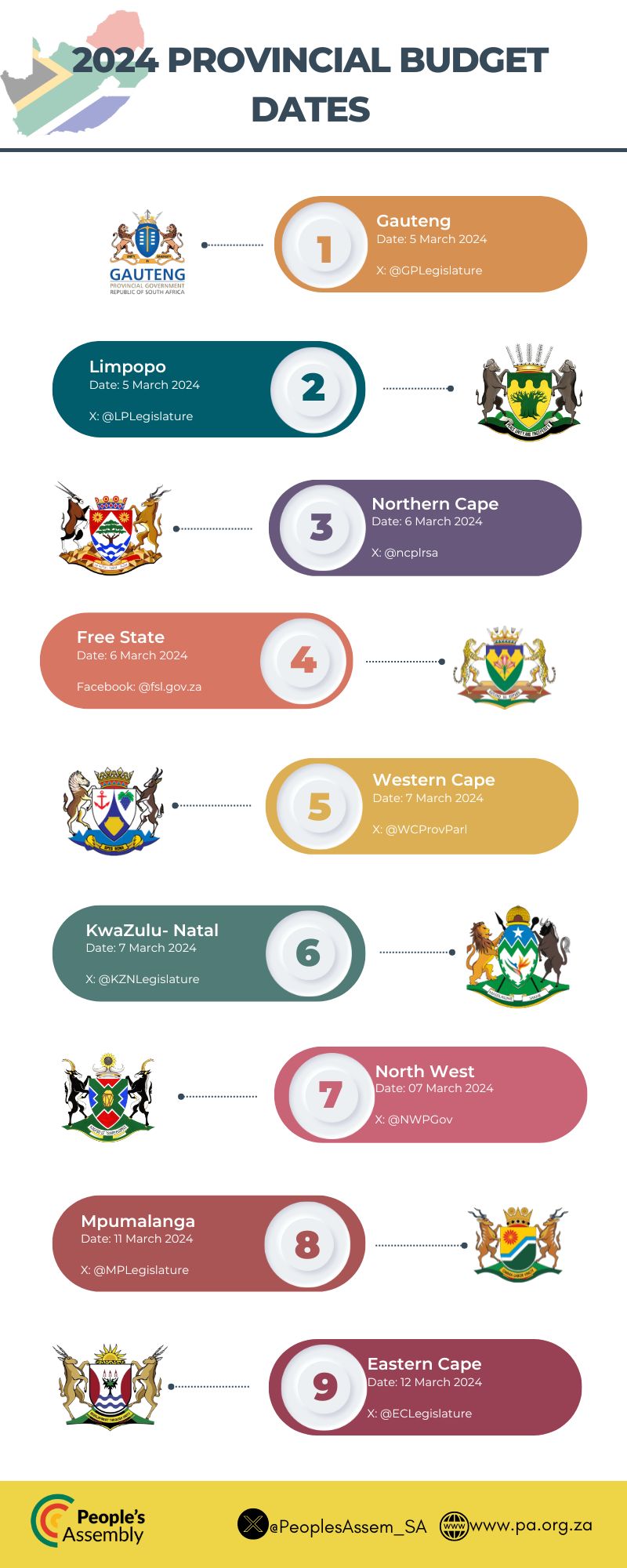The South African system of government is designed so that certain functions are exclusive (performed by one sphere only), while others are concurrent (shared between different spheres).
The Constitution divides functions among the three spheres of government and clearly distinguishes between exclusive and concurrent responsibilities. Concurrent functions include policy-making, legislation, implementation, monitoring, and performance assessment.
Functions such as school education, health services, social welfare services, housing, and agriculture are shared between national and provincial governments. Provinces are responsible for basic education, health, roads, human settlements, social development and agriculture. Provincial departments, therefore, have large budgets for implementing government programmes.
To access the budget speeches, click here!


Comments
Keep comments free of racism, sexism, homophobia and abusive language. People's Assembly reserves the right to delete and edit comments
(For newest comments first please choose 'Newest' from the 'Sort by' dropdown below.)